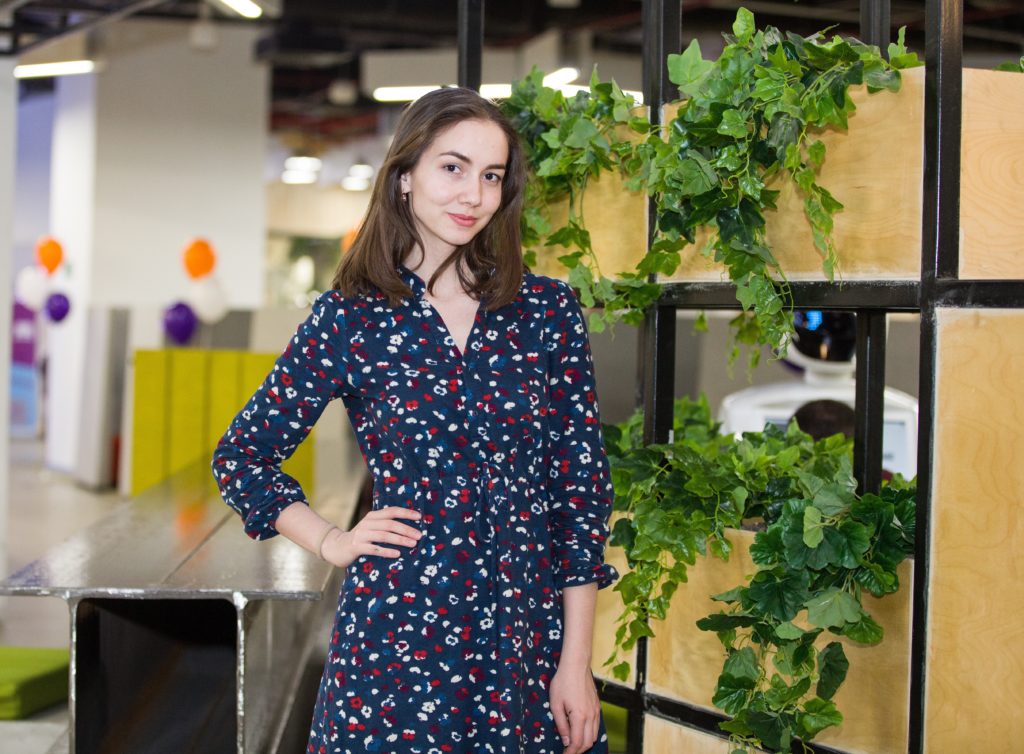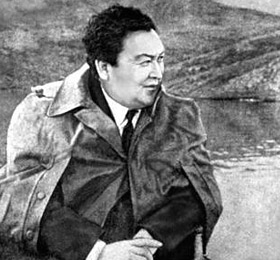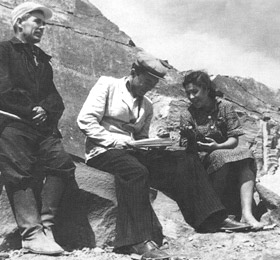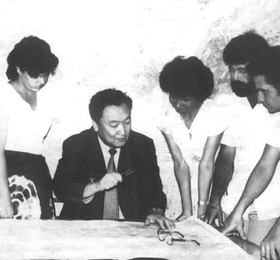Karina Lezgiyeva
Specialization: Biology. Internship: Harvard medical school, USA.
 When Karina submitted an application for the Yessenov Foundation competition for grant research, she may already have had a specific plan in mind for later life. A student from Ust-Kamenogorsk, she won the competition and had an excellent internship in one of the best medical schools in the world. But this isn’t the biggest surprise, it’s what lies ahead of her — a doctorate in neurobiology at that same Harvard school. As the saying goes, there are no coincidences.
When Karina submitted an application for the Yessenov Foundation competition for grant research, she may already have had a specific plan in mind for later life. A student from Ust-Kamenogorsk, she won the competition and had an excellent internship in one of the best medical schools in the world. But this isn’t the biggest surprise, it’s what lies ahead of her — a doctorate in neurobiology at that same Harvard school. As the saying goes, there are no coincidences.
And it is not surprising that Karina listens to podcasts even while working in the laboratory free time is very scarce, but when she has some, she likes to walk and read. Of course, she doesn’t miss out on box-sets. And when she comes home to East Kazakhstan, she always tries to get out of the city – “Our country is really very beautiful,” she explains.
Karina, why are you interested in biology and why do you plan to devote your doctoral studies to neurobiology? I’ve had an interest since childhood, no matter how banal it may sound. I was a rather curious child and always asked questions. There are a lot of interesting things, but life for me is the most interesting. And biology is just trying to understand how different organisms live. I think that the brain and nervous system are the most incredible manifestations of life, and that’s what I want to explore.
What useful tips can tell about the foundation’s grant competition for those who haven’t risked applying yet?
The most difficult thing was the psychology. I knew that smart and hard-working guys had been winners in the past, and at first it was scary to go for the same contest. Now of course I am very glad that doubts and fears did not stop me. The competition for all of us was not just an opportunity to win a grant, but also excellent training. The skills of writing an essay and presenting yourself in a business context are especially useful.
How was the internship?
I really liked the laboratory of Dr. David Ginty, I saw for real the conditions that research should be carried out in. We studied developmental neuroscience. The goal was to understand how the spinal cord develops. The work was very creative. To achieve results, we designed and manufactured so-called “viral vectors” — viruses with which you can change the proteins that the cell produces. I even managed to construct and clone one of them myself. I made most of the viruses for the project. Then we injected them into mice and studied their spinal cord. According to the results of the study, we were able to detect the protein necessary for the development of spinal cord cells.
Was it possible to create an antivirus or a medicine?
Such studies are not done quickly and do not provide answers to all questions. Our work was not aimed at applied medical benefits. But understanding the different processes will find applications in practice. For example, in the process of human development in the womb much can go wrong. So such work as ours helps to find exactly what needs to be “treated”. Secondly, I consider the acquisition of experience in the field that I will study to be an important result for myself.
Were You able to discover the non-scientific world of America?Harvard is located in a stunning city – Boston, and that summer I fell head over heels in love with it. During the three-month internship I had only three days off, but I managed to see all the main attractions, to get around the most beautiful streets. One weekend, me and the other winners of the Yessenov Foundation program met in new York. It was two unforgettable days – a sea of impressions and positive emotions.
Karina has already left for Harvard and in the fall begins a six-year PhD program, where as she had hoped to, she will study neurobiology.
6.08.19, Stories
Seen by: 945




